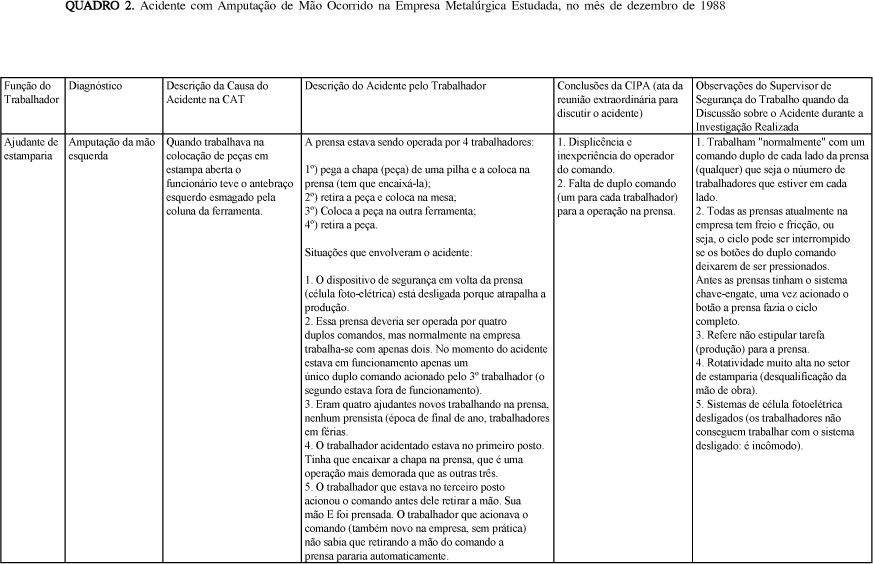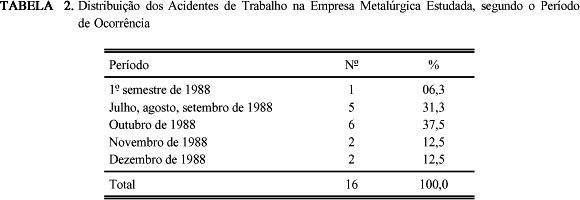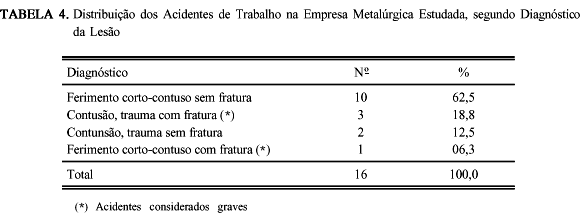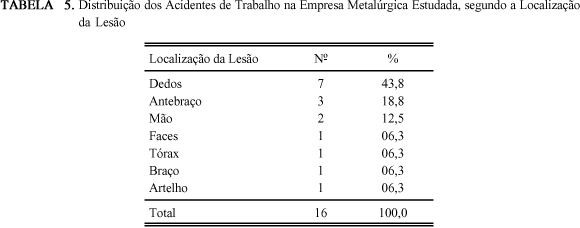Over the course of recent decades, Brazil has become an industrialized society. From an epidemiological perspective and considering changes that have been occurring in the Brazilian population, particularly concerning demographic and epidemiological transitions, this paper discusses the need to adapt the epidemiological surveillance system in order to incorporate the surveillance of non-transmissible diseases. The authors analyze the information system for work-related accidents in the Workers' Health Program, under SUDS (the Unified Decentralized Health System) for the Mandaqui Region (in the Northern part of the city of São Paulo), based on data from a local metalworking industry identified by the information system as a high-risk site for work-related accidents. The article also focuses on the importance of organized workers participating in actions to control work-related accidents. Although such participation is not always possible, the health sector must incorporate the workers' own concrete experience in order to develop more effective actions to prevent accidents at the workplace.
Occupational Health Program; Epidemiologic Surveillanc; Accidents Occupational








